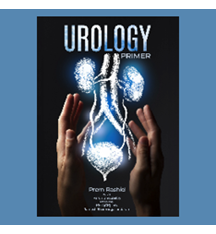2023 | Volume 24 | Issue 3

The recent 91st Royal Australasian College of Surgeons Annual Scientific Congress (RACS ASC) held from 1 to 5 May 2023 at the Adelaide Convention Centre in Adelaide, on Kaurna Country, was a resounding success, particularly regarding the Indigenous Health component.
The Indigenous Health Committee (IHC) was pleased with the outcomes and the positive impact it had on the Fellowship's understanding of equity in healthcare.
The theme of equity in healthcare was a great success, and the conference uncovered much exposure to such issues. The attendees heard from a range of speakers who provided valuable insights into the challenges faced by Indigenous communities in accessing quality healthcare. It was pleasing to have the IHC’s keynote speaker, Professor Nadine Caron, present and join the many discussions.
The IHC was happy to be involved with the inception of the theme, Equity in Surgery.
Over five days, surgeons, Fellows, health professionals, Indigenous surgeons, Trainees, and pre-vocational doctors gathered from Australia, Aotearoa New Zealand, Canada among others. It is not surprising that the Indigenous health component was a highlight of the conference (for us) and the feedback from attendees was overwhelmingly positive.
Attendees gained a better understanding of the cultural and systemic barriers that Indigenous peoples face in accessing healthcare and the need for a collaborative approach to overcome these challenges.
The Indigenous Health Committee (IHC) was pleased with the outcomes and the positive impact it had on the Fellowship's understanding of equity in healthcare.
The theme of equity in healthcare was a great success, and the conference uncovered much exposure to such issues. The attendees heard from a range of speakers who provided valuable insights into the challenges faced by Indigenous communities in accessing quality healthcare. It was pleasing to have the IHC’s keynote speaker, Professor Nadine Caron, present and join the many discussions.
The IHC was happy to be involved with the inception of the theme, Equity in Surgery.
Over five days, surgeons, Fellows, health professionals, Indigenous surgeons, Trainees, and pre-vocational doctors gathered from Australia, Aotearoa New Zealand, Canada among others. It is not surprising that the Indigenous health component was a highlight of the conference (for us) and the feedback from attendees was overwhelmingly positive.
Attendees gained a better understanding of the cultural and systemic barriers that Indigenous peoples face in accessing healthcare and the need for a collaborative approach to overcome these challenges.
Dr Ben Cribb
The success of the Indigenous health component was due to the collaborative efforts of the committee, the speakers, and the attendees. Representing Indigenous health at RACS were Dr Ben Cribb, Chair of the Indigenous Health Committee; Professor Kelvin Kong, Chair of the Mina Advisory Group; and Professor Jonathan Koea, RACS Māori Trainee Liaison Lead. Professor Nadine Caron from the University of British Columbia, Canada was the distinguished visitor for the Indigenous health section.
The committee ensured that the program included a range of speakers with diverse experiences and perspectives, including those from Indigenous communities, healthcare providers, and policymakers. Keynote speakers included Professor Caron, whose lecture ‘Bench to Bedside’ introduced attendees to the experiences of Indigenous surgery in Canada.
Other keynote speakers included Professor Koea who spoke on cancer services in Aotearoa New Zealand (AoNZ), Dr Curtis Walker on cultural safety and competency, and Dr Dawn Casey on COVID-19 in Indigenous communities.
Surgeons from Australia, AoNZ, Fiji and the broader Pacifika nations also presented and engaged in many sessions. To have Dr Maxine Ronald, Professor Kelvin Kong and Dr Hinewaiora McCleery present in plenary sessions was ground-breaking for so many Indigenous attendees at an ASC. This ensured that all attendees had the opportunity to develop a comprehensive understanding of the issues faced by Indigenous peoples as well as potential solutions.
The Congress was also attended by Aboriginal and Torres Strait Islander and Māori recipients of the ASC and the Peer Support awards. These included Dr Sarah Bormann, Dr Sara Lai and Dr Emily Mason from Australia, and Dr Emma Espiner, Dr Selwyn Te Paa, Dr Samuel Lloyd, Dr Nasya Thompson, Dr Hinewaiora McCleery, Dr Emma Espiner and Dr Christina Gordon from AoNZ.
The program began on 1 May with a community site visit to the Adelaide Botanic Gardens. Attendees from the Congress were guided by Jack Buckskin—a Kaurna and Narrunga man—on the Kaurna cultural experience, introducing local community and culture. The opportunity this powerful walk-through country had in giving a better understanding was immeasurable and was well appreciated by our international delegates.
The Indigenous Health Breakfast on 3 May was attended by Dr Sally Langley, immediate past-president and the current RACS president Associate Professor Kerin Fielding.
Dr Cribb presented ASC award certificates. Pre-vocational doctors, who are likely to make valuable contributions to the surgical profession in the future, made personal introductions. This contributes to RACS goal of parity with the general population.
Overall, the success of the Indigenous health component at the RACS ASC demonstrated the importance of promoting equity in healthcare. It also highlighted the need for a collaborative approach to addressing the challenges faced by Indigenous communities and the College’s role in this important space. The insights and discussions generated by the conference will undoubtedly inform future policies and practice, leading to better healthcare outcomes for all.
This year’s Indigenous Health section at the ASC was the largest gathering of Indigenous surgeons to date. It also had the most diverse, numerous and engaging topics, presenters and talks. The week was capped off by the Congress dinner on 4 May with the handover of the RACS presidency to Associate Professor Kerin Fielding and vice presidency to Professor Owen Ung.
We look forward to the 92nd Annual Scientific Congress in Christchurch, AoNZ, in 2024, which will build on the successes of the 2023 Congress.


